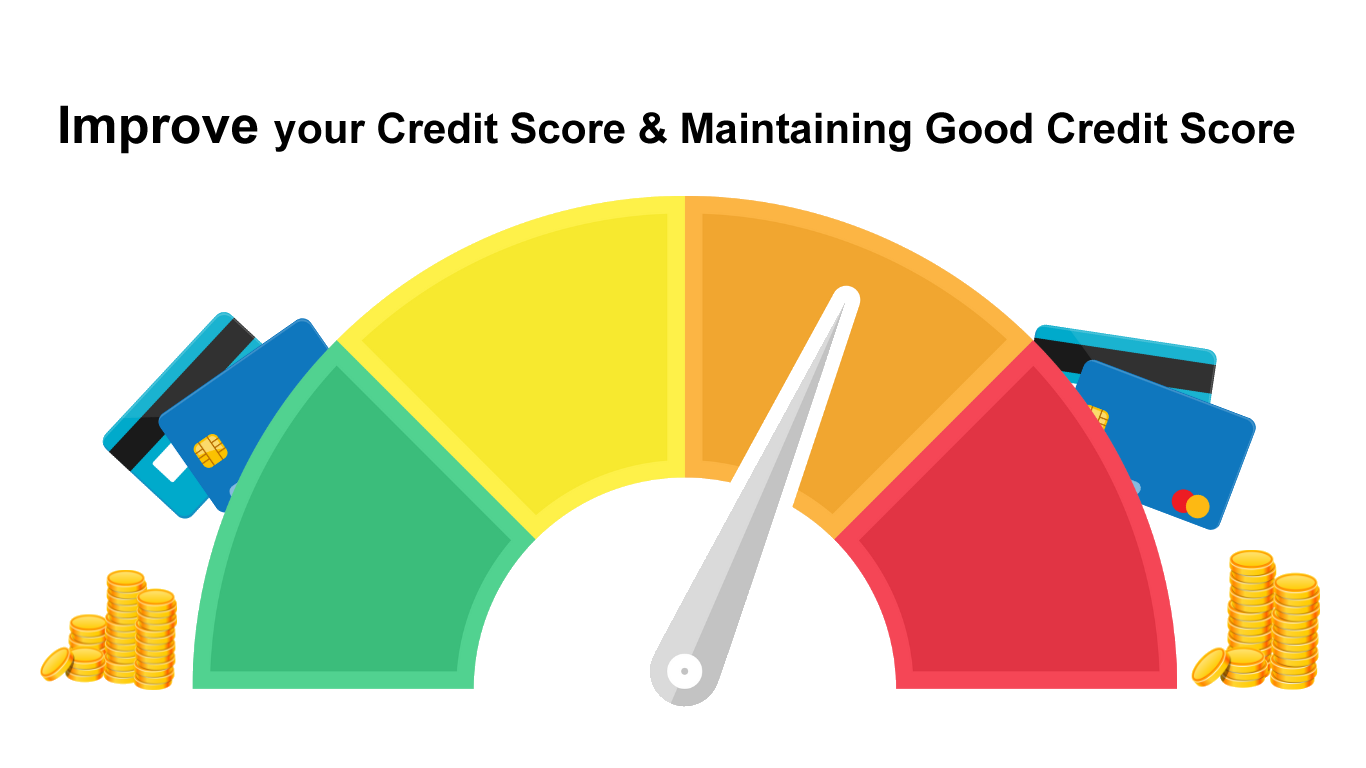Don't have an account?
Login to EaseMyDeal

2024-04-08
102
In today's world, your credit score is more than just a number; it's a key determinant of your financial health. Whether you're looking to secure a loan, rent an apartment, or even apply for a job, your credit score plays a significant role. Therefore, it's crucial to understand how to improve and maintain it. In this blog, we'll explore effective strategies to boost your credit score and ensure long-term financial stability.
Understanding Credit Scores:
Before diving into improvement strategies, let's grasp the basics. A credit score is a three-digit number that reflects your creditworthiness based on your credit history. It typically ranges from 300 to 850, with higher scores indicating lower credit risk. Credit scores are calculated using various factors, including payment history, credit utilization, length of credit history, types of credit accounts, and new credit inquiries.
Improvement Strategies:
Monitor Your Credit Report Regularly: Start by obtaining a copy of your credit report from each of the major credit bureaus – Equifax, Experian etc. Review the reports carefully for any errors or inaccuracies. Dispute any discrepancies promptly as they could negatively impact your credit score.
Pay Your Bills on Time: Your payment history carries significant weight in determining your credit score. Make sure to pay all your bills – credit cards, loans, utilities, etc., on time. Consider setting up automatic payments or reminders to avoid missing due dates.
Reduce Credit Card Balances: Aim to keep your credit card balances low relative to your credit limits. High credit utilization – the ratio of your credit card balances to their limits – can adversely affect your credit score. Strive to keep this ratio below 30%, if possible.
Increase Credit Limits: Another way to improve your credit utilization ratio is by increasing your credit limits. Contact your credit card issuer and inquire about a credit limit increase. However, exercise caution not to use the higher limit as an excuse to accumulate more debt.
Diversify Your Credit Mix: Having a diverse mix of credit accounts, such as credit cards, loans, and mortgages, can positively impact your credit score. If you only have credit cards, consider diversifying by adding an installment loan or a mortgage to your credit profile.
Avoid Opening Too Many Accounts: While having multiple credit accounts can diversify your credit mix, opening too many accounts within a short period can raise red flags for lenders. Each new credit inquiry temporarily dings your credit score, so be strategic and apply for credit only when necessary.
Keep Old Accounts Open: The length of your credit history matters. Keep your oldest credit accounts open, even if you're not actively using them. Closing old accounts can shorten your credit history and potentially lower your credit score.
Limit New Credit Applications: Be selective when applying for new credit. Each credit application results in a hard inquiry on your credit report, which can lower your score slightly. Apply for credit only when you genuinely need it and avoid multiple inquiries within a short timeframe.
Improving your credit score is only half the battle; maintaining it requires consistent effort and responsible financial habits. Here are some tips to help you sustain a healthy credit profile:
Create a Budget: Establishing a budget allows you to track your expenses, prioritize your spending, and avoid overspending. Allocate funds for essential expenses, savings, and debt repayment to ensure you're living within your means.
Build an Emergency Fund: Having an emergency fund can prevent you from relying on credit cards or loans during unexpected financial setbacks. Aim to save at least three to six months' worth of living expenses in a separate savings account.
Regularly Review Your Finances: Set aside times each month to review your financial situation. Monitor your spending, track your progress towards your financial goals, and make adjustments as needed. Staying proactive can help you avoid falling into debt traps.
Use Credit Wisely: While credit cards offer convenience and rewards, it's essential to use them responsibly. Only charge what you can afford to pay off in full each month to avoid accruing high-interest debt. Additionally, refrain from cash advances and impulse purchases that can derail your financial goals.
Stay Organized: Keep all financial documents, including bills, statements, and receipts, organized and accessible. Regularly reconcile your accounts, check for any discrepancies, and address them promptly. Maintaining good record-keeping habits can prevent oversights and potential issues down the line.
Conclusion:
Improving and maintaining a good credit score requires diligence, discipline, and smart financial management. By implementing the strategies outlined in this blog and adopting healthy credit habits, you can take control of your financial future and achieve long-term stability. Remember, your credit score is not set in stone – it's a reflection of your financial behavior, and with the right approach, you can continually strive for improvement.

Write A Comment